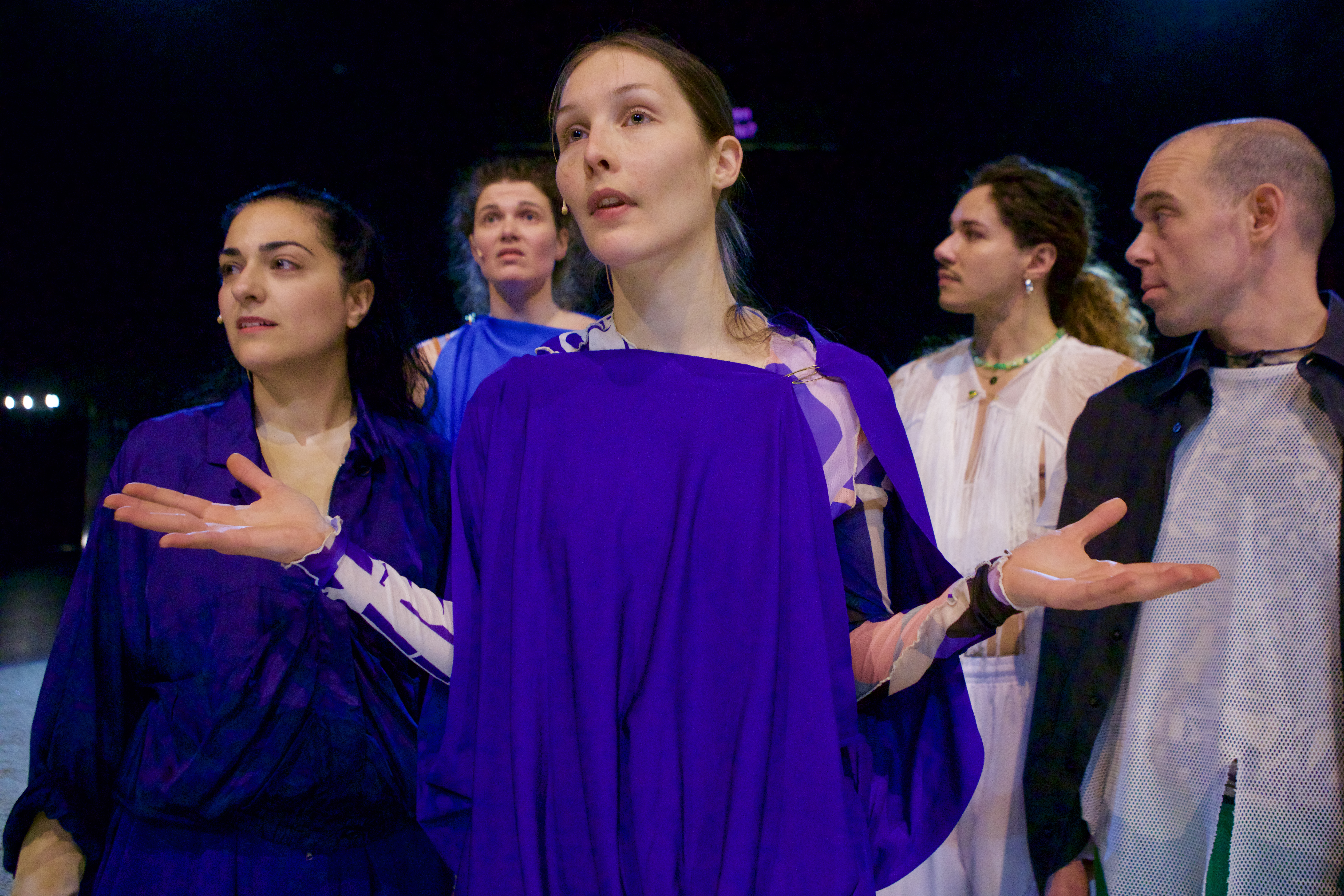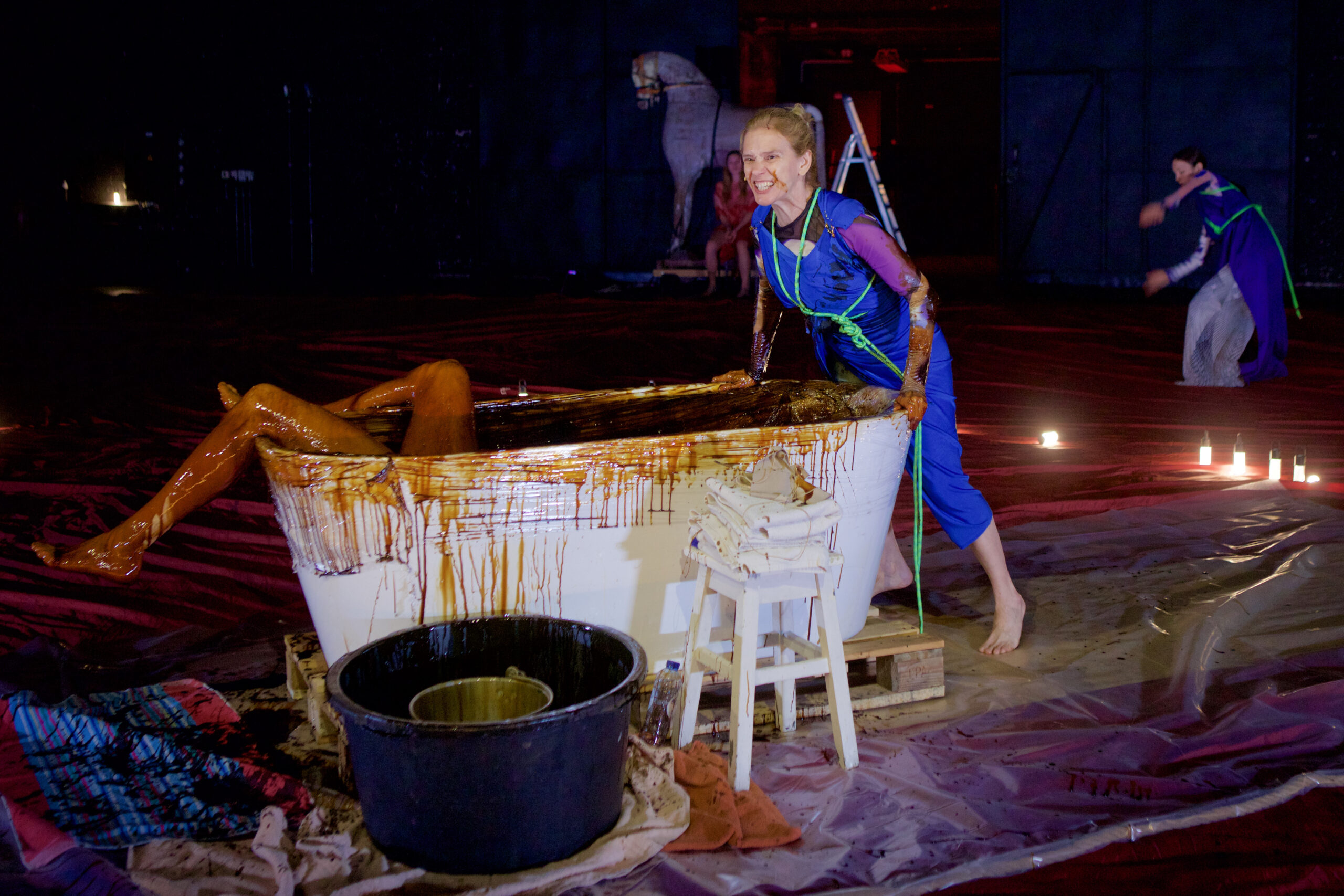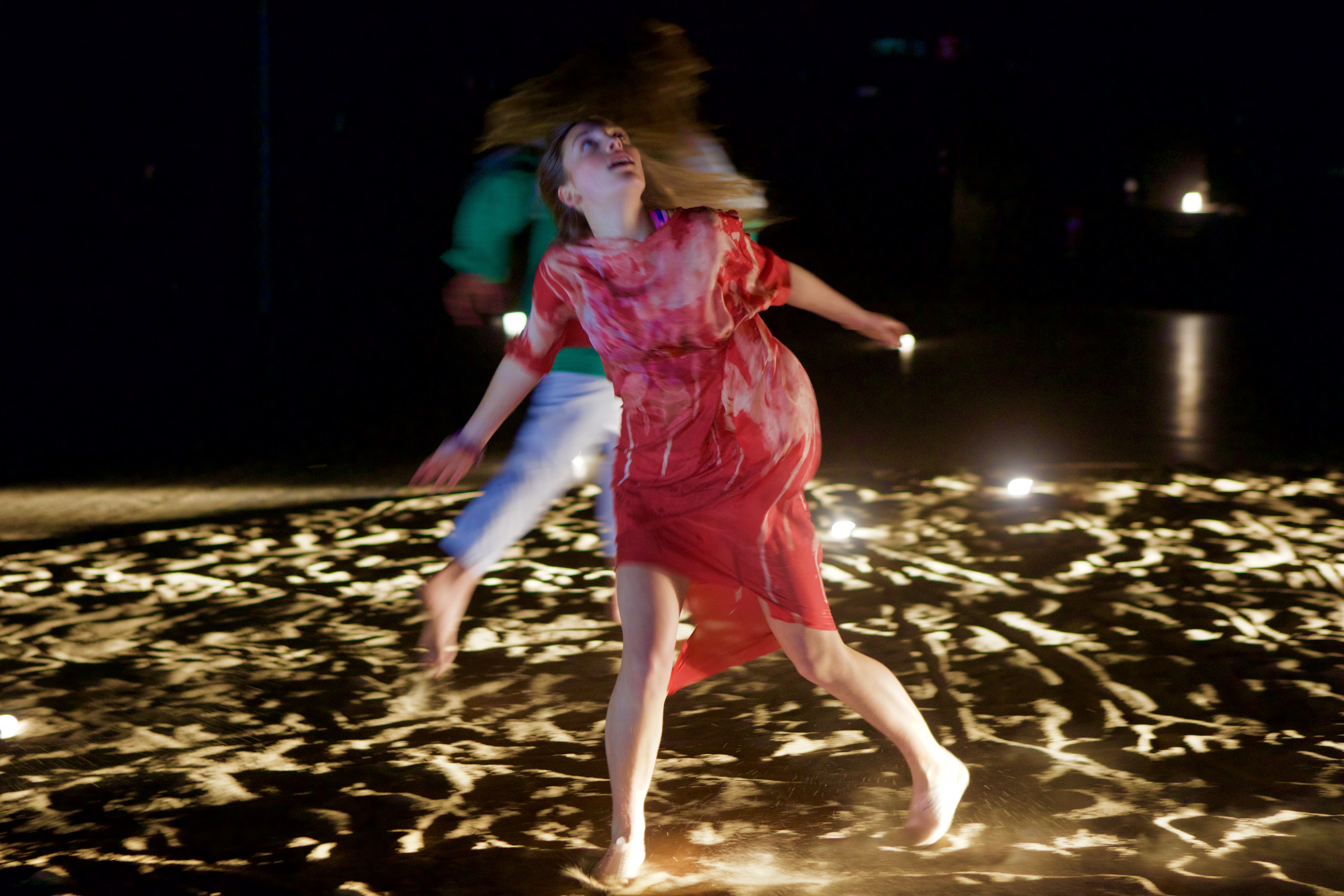1-3
“If evil is in this wind, let it blow over.”
That’s what we read in Ted Hughes’ translation of the Oresteia. The first part of the trilogy of Greek playwright Aeschylus focuses on the story of Agamemnon, king of Mycenae, and his wife Clytemnestra (in Greek: Klytaimnḗstra). To obtain a favourable wind to sail his ships to Troy, the king decides to sacrifice his daughter Iphigenia. When Agamemnon eventually wins the Trojan War, he returns home, where a confrontation with Clytemnestra awaits.
In 2022, STAN presented an outdoor adaptation of this story in Elefsina (Greece), the birthplace of Aischylos. In 2024 the company will collaborate with Olympique Dramatique to present a stage version of the performance. The play connects three interpretations of the famous Greek tragedy: Aischylos’ original text, Ted Hughes’ masterful English translation, and Gustav Ernst’s contemporary interpretation, Bloodbath. By juxtaposing these three readings of the mythical text, the unbridled wariness and toxic masculinity surface, enabling us to see the character of Agamemnon in a new light.
Ernst knows how to bring forward the unbridled bellicosity and male urge for expansion. In this story, rape and murder is ubiquitous, although seemingly trivial at the same time. As a spectator, we’re confronted with the almost apathetic position we adopt towards brutality. This contemporary adaptation demonstrates how misogyny is still accepted in modern society, just as it was thousands of years ago. Today, we’re still surrounded by a thirst for power and violence – the atrocities didn’t end with Greek civilization.
The story’s contemporary relevance is evident: not only because of the theme, but also because of the way Greek culture questioned social concepts and role patterns. Classic literature offered a reflection on reality by staging situations that weren’t possible in reality. Women, who were silenced in the real world, earned a public function in tragic plays: the liberty to put their feelings, thoughts and motives into words.
The concept of the outsider also played an important role in Greek theatre. They dared to challenge adopted verities and therefore held up a mirror to the social order, in accordance with the principles of democracy, the cornerstone of Greek society.
Clytemnestra serves a critical function as both woman and as an outsider: unlike her husband and subjects, she’s not from Mycenae, but from Sparta. She refuses to accept the situation as it is and deliberately chooses to fight violence with violence. Not out of pleasure – as is the case with Agamemnon – but because it’s the only way to challenge the injustice against women and innocent citizens.
Clytemnestra:
Why do you feel compelled to chase around
all the time, slaughtering
other nations who, after a while,
won’t tolerate it any longer
and start slaughtering in turn.
Clytemnestra is not just a character avenging her daughter. She’s the mother of all mothers, an obstructionist embodying female intuition and the non-rational, making a fundamental impact in her own way.
Just like in the original Greek text – and in the different adaptations – we want to question contemporary (gender) identities and truths with this performance. Providing a new reading, we want to give a voice to the voiceless.
Cassandra:
I won’t go in there. Where the air is tainted
a person becomes tainted,
where the earth has been subjugated
until it no longer belongs to itself, a person is
subjugated until he no longer belongs to himself.
A polyphonic ensemble, consisting of Belgian and Greek actors, a Filipino and Norwegian performer, incorporates different perspectives and exposes the dynamics between dancers and actors. It’s a dissection of misogyny both 2,500 years ago and today. Of power, of violence, of the indifference with which we endure brutality. A questioning of contemporary (gender) identities and truths, with the common thread: where does intuition take over from reason?
1-3
I only understand
that you don’t understand
the burden of power.
What’s mine today could be taken
from me tomorrow. What could be taken from me
tomorrow
must be consolidated
before the day after tomorrow.
We have nothing to build on
except
our strength.
You have your blood, but
that is more easily shed than our
power is defeated.
In English
by and with Antonis Antonopoulos, Adriana Bakker, Synne Enoksen, Sara Haeck, Eleni Moleski, Joshua Serafin, Gustavo Gláuber, Maria Skoula, Stijn Van Opstal
concept and direction Jolente De Keersmaeker
text ‘Agamemnon’ (‘Oresteia’) from Aeschylus, Ted Hughes and Gustav Ernst
With quotes from the works of Tiago Rodriguez, Tom Lanoye and Marguerite Yourcenar
choreographic advice Youness Khoukhou
scenography & lighting Thomas Walgrave
costumes Rachid Laachir
translation Martine Bom
musical concept Frank Vercruyssen
production STAN & Olympique Dramatique / Toneelhuis
with the support of the Tax Shelter measure of the Belgian Federal Government
2024
April
2022
july
Fri 22.07.22 21:00
Eleusis
Fri 22.07.22 21:00
Eleusis






